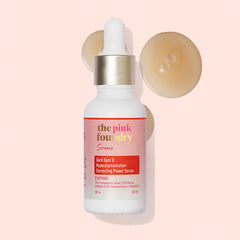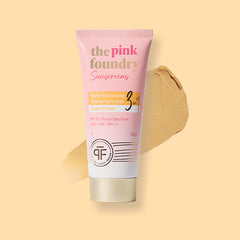Antibiotics for Acne: How They Work and When to Consider Them
- Understanding Acne and How Antibiotics Can Help
- Different Types of Antibiotics Used for Acne Treatment
- Pros and Cons of Using Antibiotics for Acne
- When to Consider Using Antibiotics for Acne?
- Risks and Side Effects of Using Antibiotics for Acne
- Alternatives to Antibiotics for Acne Treatment
- Conclusion
Millions of individuals throughout the world suffer from the common skin condition acne, which can sometimes be more than just a passing worry. People are frequently left searching for a workable answer while also dealing with self-esteem concerns.
In such cases, dermatologists frequently recommend antibiotics as a treatment. We'll further talk or deep dive into the topic in this article, learning how they function, and when it's appropriate to use them.
Understanding acne and how antibiotics can help
Acne is frequently characterised by the presence of pimples, blackheads, and whiteheads. In these blocked follicles, the environment is ideal for the growth of bacteria, especially Propionibacterium acnes (P. acnes). The immune system's reaction is to inflame the area, giving acne lesions their red, puffy appearance.
The fact that antibiotics focus on the germs that cause acne makes them a powerful weapon in the fight against it. By reducing the amount of P. acnes bacteria on the skin, they can lessen irritation and stop new breakouts from occurring.
Different types of antibiotics used for acne treatment
Acne is typically treated with a variety of antibiotics, each with specific qualities. Apart from amoxicillin for acne, the following antibiotics are commonly used for acne:
1. Tetracyclines
For moderate to severe acne, doctors frequently prescribe antibiotics like doxycycline and minocycline. They function by decreasing inflammation and preventing bacterial development.
2. Macrolides
When other therapies are ineffective, the macrolide antibiotic erythromycin may be used to treat acne. Bacterial growth is slowed as a result of its action.
3. Clindamycin
Clindamycin is an additional antibiotic used to treat acne and is offered in both topical and oral formulations. It functions by preventing the creation of bacterial proteins.
4. Sulfonamides
For severe cases of acne, the antibiotic combination sulfamethoxazole-trimethoprim is utilised. It fights microorganisms and lessens swelling.
Pros and cons of using antibiotics for acne
Antibiotics for acne therapy have benefits and drawbacks, just like any other medical procedure.
Pros
- Inflammatory acne can be treated quickly with antibiotics, which also lessens the intensity and frequency of breakouts.
- To improve outcomes, they can be used with other topical medicines or treatments.
Cons
- Antibiotics may become less effective over time when bacteria develop resistance to them. This raises serious questions regarding long-term antibiotic use.
- Due to the possibility of developing antibiotic resistance, antibiotics are often only advised for short-term use.
When to consider using antibiotics for acne?
A dermatologist should be consulted before making the crucial decision of when to use antibiotics for acne. In the following circumstances, they might advise using antibiotics:
1. Moderate to severe acne
When acne is seriously bothering a person or creating scars, antibiotics are frequently prescribed.
2. Failure of topical treatments
Oral antibiotics can be used when topical therapies available over-the-counter or on prescription are unsuccessful.
3. Combination therapy
In some instances, acne medications like topical retinoids or benzoyl peroxide are used with antibiotics.
Also Read: Understanding Acne Nodules: Causes and Treatment
Risks and side effects of using antibiotics for acne
Although antibiotics might be helpful in treating acne, it's vital to be aware of any possible side effects and risks:
1. Antibiotic resistance
Antibiotic resistance can result from repeated use, which reduces their ability to treat bacterial infections like acne.
2. Gastrointestinal issues
Antibiotics can result in digestive issues, including diarrhoea or yeast infections.
3. Photosensitivity
Some medications increase the skin's sensitivity to sunlight, which raises the possibility of getting sunburned.
4. Long-term use concerns
Concerns about the long-term effects of antibiotic use, particularly the possibility of immune system disruptions, are raised.
Alternatives to antibiotics for acne treatment
There are alternate acne treatments to take into consideration if you're worried about the hazards of taking antibiotics or if they haven't worked for you:
1. Topical treatments
Mild to moderate acne can be efficiently treated with topical medications such as salicylic acid, retinoids, and benzoyl peroxide. The Pink Foundry’s Clearing & Calming Acne Face Wash gently purifies and relaxes the skin. Enriched with 1.5% salicylic acid it removes extra oil and cleans the pores.
2. Hormonal therapies
Hormonal treatments for acne, may work well for some people.
3. Chemical peels
Chemical peels may be suggested by dermatologists to exfoliate the skin and lessen acne lesions.
4. Lifestyle changes
Improved skin health can result from a healthy lifestyle that incorporates a balanced diet, frequent exercise, and stress reduction.
The Acne Care & Healing Gel Moisturiser with Tea Tree & Cica, and Overnight Acne Spot Corrector, along with the potent face wash, are three effective acne treatments from The Pink Foundry. The moisturiser, enhanced with Tea Tree and Cica, can be greatly effective to achieve a smoother skin tone. By targeting acne at every step of the skincare regimen, they work as a complete acne-fighting measure to encourage cleaner, healthier skin.
Conclusion
Antibiotics can be a useful ingredient in the fight for clear skin when used wisely and with a dermatologist's advice. However, they do have some side effects and need to be carefully considered. To make an informed choice regarding the use of antibiotics for acne, it is crucial to balance the benefits and drawbacks, look into complementary therapies, and maintain open communication with a healthcare provider.










